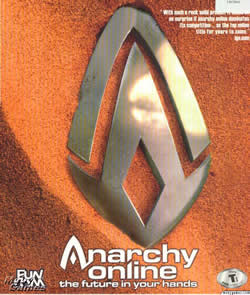Just a bit of fun
Seen on the first Sunday after the Revolution, I guess…

You can make your own at Church Sign Generator.com. (Thanks, Roxanne.)
official state media for a secessionist republic of one
Effluvia and Ephemera
Seen on the first Sunday after the Revolution, I guess…

You can make your own at Church Sign Generator.com. (Thanks, Roxanne.)
The latest issue of Wired arrived at my door a few days ago with a delighful surprise tucked into the front cover: an unassuming white compact disc, included for free with the magazine, that just happened to contain 16 precision strikes against the intellectual monopolists, freed under a Creative Commons copyleft license for sharing and sampling.
Since I’ve inveighed against enforced intellectual property
monopolies and praised copylefting
content here before, you know that I’d be delighted just to see the growth in the world of free content (free as in free speech
, not as in free lunch
–the songs were gratis as well as libre, but that’s not the important part) and the contribution of big-name artists to publicity for the work that Creative Commons is doing.
However, I’m also happy because it has so many damn good songs on it; in the car and at home I’ve been enjoying a free culture that now embraces fantastic tracks from the Beastie Boys, David Byrne, Le Tigre, and Chuck D, among others. The real hidden gem of the CD, though, is from The Rapture, a group I’d never encountered before hearing them on the Wired CD, in the form of 7:05 of deviously pulsing electronic deliciousness known as Sister Saviour (Blackstrobe Remix). The groove–racing, zigzagging, turning back on itself in my mind–is something that has to be shared. And the best part is that I can, thanks to artists who are actually willing to turn their work out into the world without threatening people who presume to use it.
Since I like this m?@c3;ba;sica libre so much, I’ve decided to do just that–by making it all available to you, gentle reader. You can find a full track listing and MP3 files of each track in the extended section of this entry. Listen, share, remix. Enjoy!

Something I meant to mention earlier, but put on the back burner for the duration of the usual November Nonsense: Rad Geek People’s Daily is now syndicated at Anarchoblogs, a rad project that Anarchogeek launched a bit more than a month ago in order to raise awareness of anarchist weblogs and build community and conversations between anarchist webloggers.
If you’re interested in the technical jots and tittles, Anarchoblogs tracks the Atom feed of Geekery Today, and then uses Planet Planet to aggregate posts with posts from all the other feeds that it tracks, and shoehorn the results into an HTML template and some syndication format feeds. If you’re not interested in the technical jots and tittles, the main thing that you need to know is that Anarchoblogs is a great place to find out about anarchist weblogs you haven’t read before, and to keep track of what’s going on on their sites all in one place. All in all, a very cool project cobbled together out of some neat, low-energy hacks.
Give it a look. If you’re an anarchist (autonomist, voluntaryist, syndicalist, whatever), submit your site. Keep on rocking in the free world.
You really ought to be getting out and voting today. It’s not a civic duty, but it is a prudent contribution towards your own self-defense and it’s not like it takes that long, anyway.
But if you already have, feel free to engage in some far deeper and more meaningful activities. For example, if you have Flash and a mouse, you can slap the tar out of virtual avatars of George Bush and John Kerry.
Ah, political engagement.
Like Roderick, I’ll be spending this weekend at the Alabama Philosophical Society annual shindig–in fact, by the time you read this I will probably already be in Mobile, presenting my essay on Hume’s empiricism and the Missing Shade of Blue–in somewhat shortened version. Here’s an even shorter version: Hume divides all of our perceptions into ideas or impressions, and all of our ideas and impressions can be analyzed as either complex (i.e., made up out of other more basic ideas or impressions) or simple (existing independently of any other perception). He then famously argues that any idea that we can have is ultimately derived from sense experience–because all of our complex ideas must ultimately be composed of simple ideas, and–here’s the big claim–we cannot have any simple ideas except those that are copied from a corresponding simple impression. You can call this the copy princple; it’s both the most important philosophical conclusion in the opening chapters of the Treatise and the first Enquiry, and also the most important methodological principle used in the rest of the book. It’s the key to Hume’s empiricism, and the foundation of nearly all of his most famous arguments concerning causality, the external world, the idea of substance, personal identity, and so on. Yet immediately after giving two arguments for it, he goes on to argue that there is a specific counterexample to it–the so called Missing Shade of Blue. My essay takes up the puzzle and the two questions it raises–the exegetical question of just what the hell Hume thought he was doing in raising, accepting, and then apparently ignoring a counterexample to the principle whose universal truth seems to be the linchpin of his empiricist philosophy; and the philosophical question of what alternatives were on offer, and whether Hume’s solution was the right solution to take. The shorter version of my essay mostly drops the first question, out of considerations of space, in order to concentrate on a novel answer to the second that’s adapted from a distinction made in Mike Watkins’ work on Hume’s arguments on causation. (Actually Watkins’ distinction is subtly different from my adaptation of it to the case; but that’s not too important here.) I argue that Hume actually uses the notions of simplicity and complexity to do two distinct, and separable, kinds of work, and that once the two notions are separated, it becomes clear that there is an attractive solution to the puzzle of the Missing Shade of Blue that avoids abandoning the copy principle by revealing that it is actually ambiguous, and that the only formulation of it worth saving actually poses no difficulty for the Missing Shade thought-experiment. I go on to argue that the richer picture of experience that this offers has big potential ramifications for Hume’s most infamous applications of the copy principle: his skeptical examinations of the idea of objective causal connexion and the idea of external objects.
(Yes, I know that it’s controversial to claim that Hume was a skeptic on these matters. I don’t care. Whether or not Hume ultimately endorsed a skeptical attack on the alleged content of these ideas and the justification of the principles based on them, and if so however he meant for that to be taken in light of his claim that these same arguments are in some sense unnatural, all that I’m concerned with in my essay is the much less controversial claim that Hume found some sort of suspicious examination of these ideas compelling from some standpoint. The name “Hume” is used as a sort of useful shorthand for the case that he makes; if the skeptical Hume does not exist, it will be necessary to invent him.)
Anyway, if you want a more thorough examination than that, you’ll have to just read the essay–but that shouldn’t be too hard, because I’ve placed a draft of it online. Feel free to pass along any questions, comments, applause, brickbats, etc. which may come to mind.
In any case, I’ll be relaxing in Alabama for the rest of the weekend; L. and I are going to be down in Mobile until tomorrow afternoon for the conference, and then staying with my parents for another day before heading up to Detroit again on Monday. Don’t be surprised that posts are held up for a while (ho, ho, ho–as if that’s something new); in the meantime you might check out a couple of fascinating-looking weblogs that Ampersand lately recommended: AVEN Blog, a weblog for the asexual community (which I’m hearing a lot about since the recent article in New Scientist), and Sisters Talk.
I’ll see you in November. Cheers!